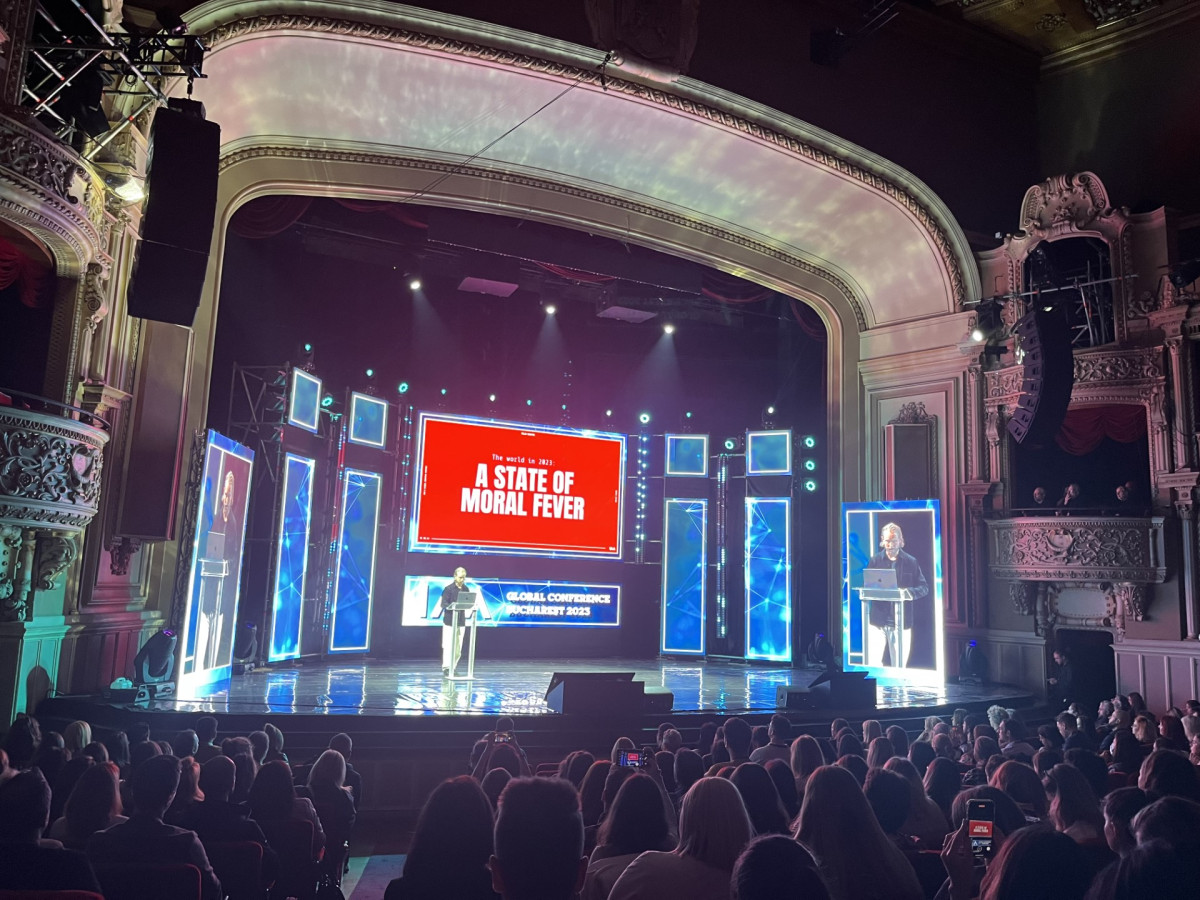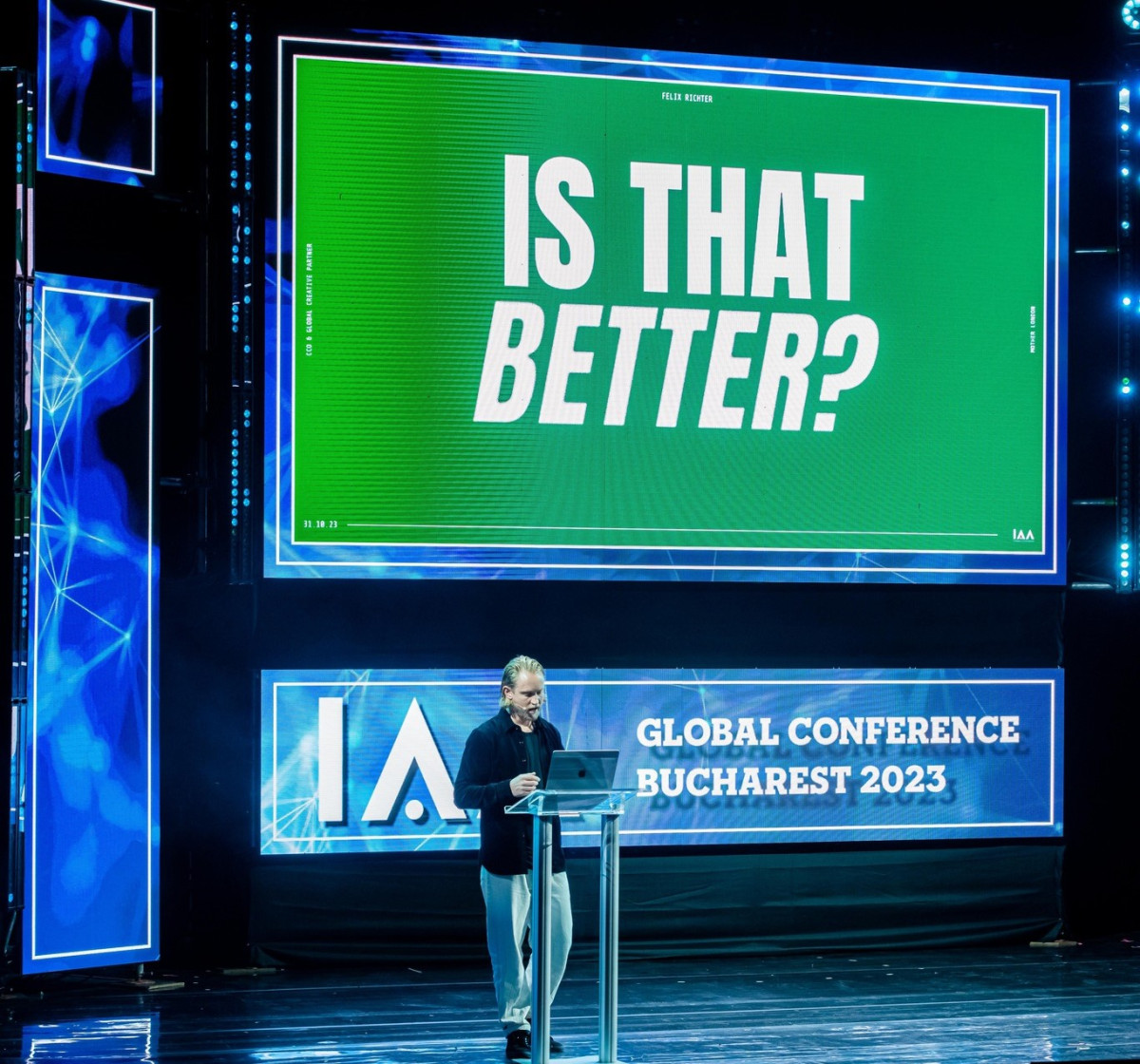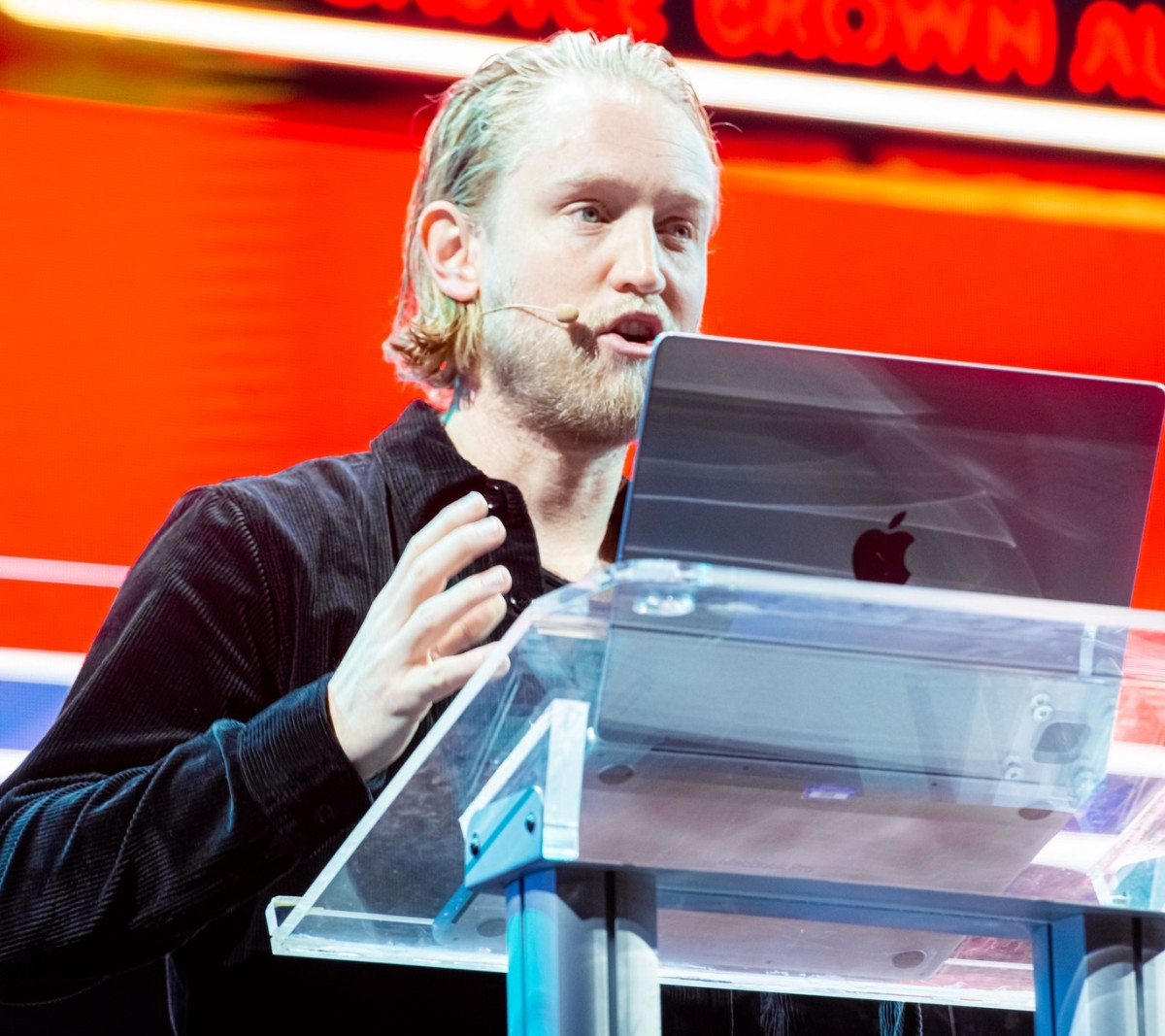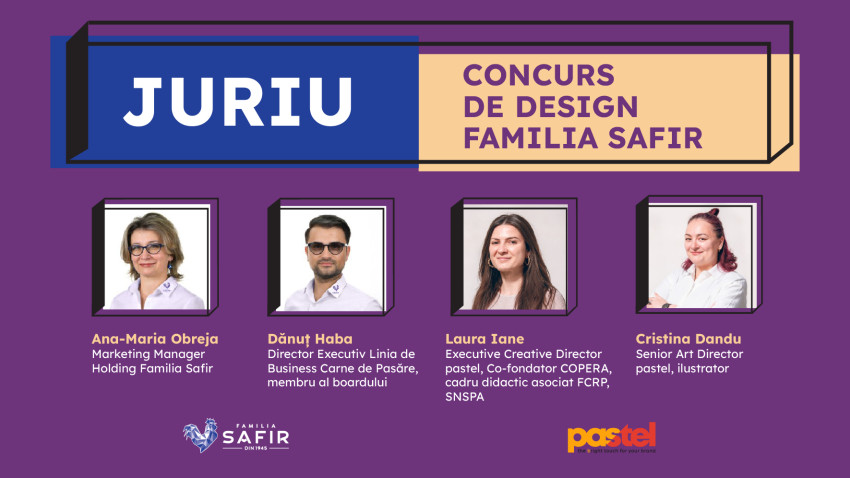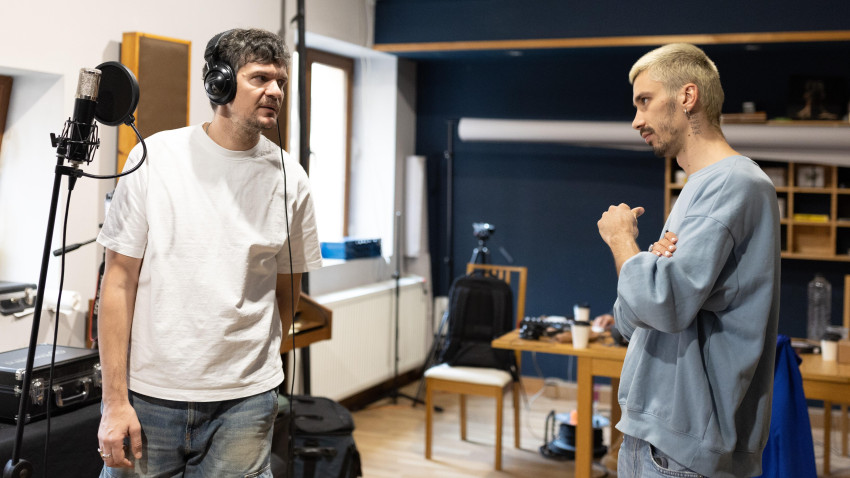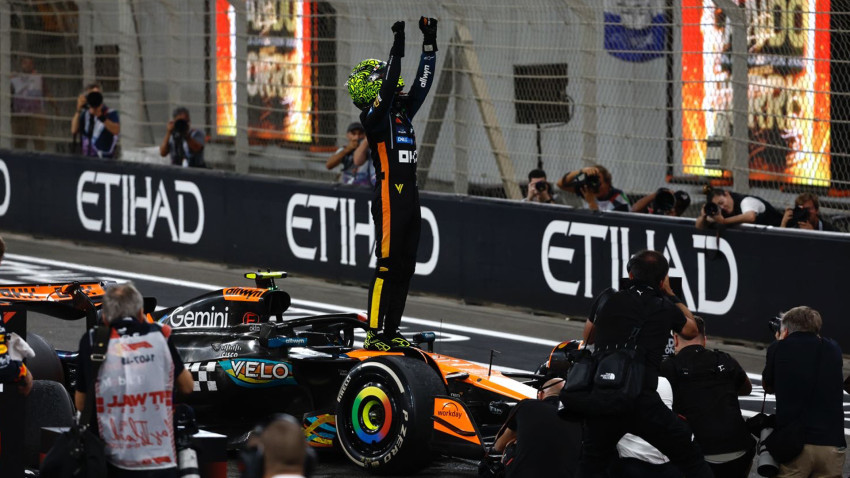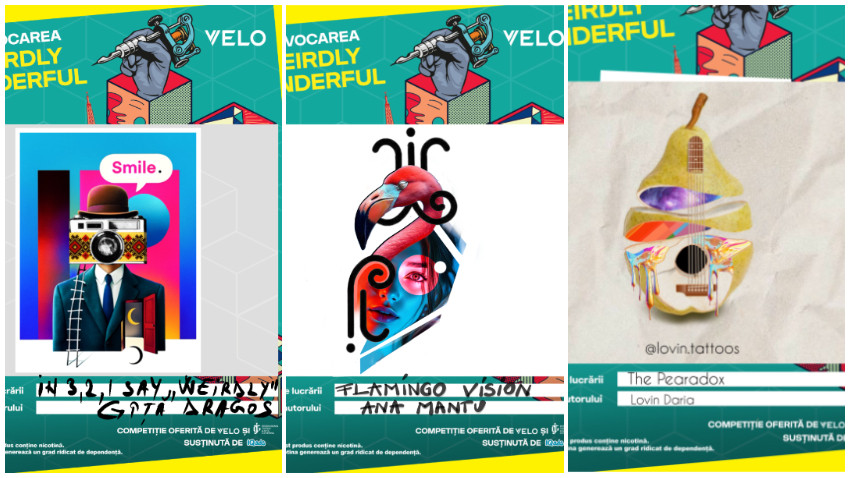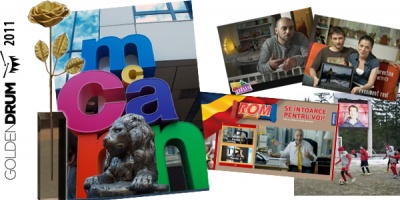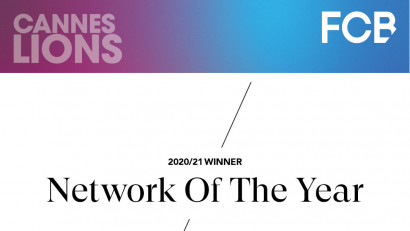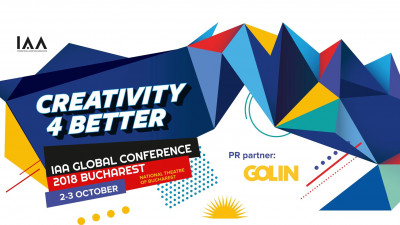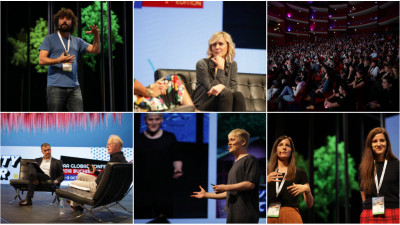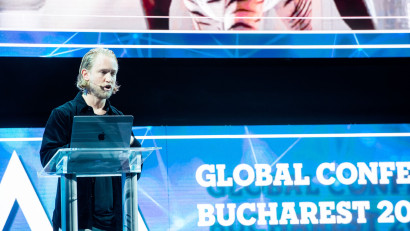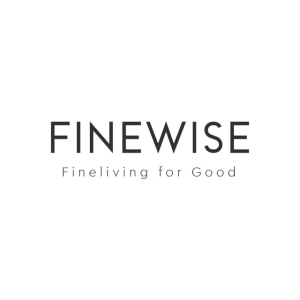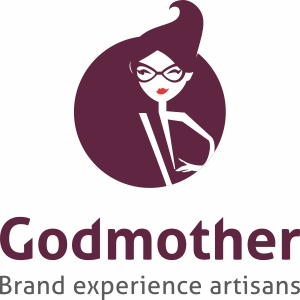We moved from postmodernism and hipsterism intoa period of moral fever. A time when cultural products became moral instruments, a new era that started in pop culture. The Age of Something New, Fun and Good. Is that better? asked Felix Richter, Creative Partner & CCO Mother London, at the Creativity4Better global conference, organised by IAA Romania in Bucharest this month. The first speaker of the event, Felix summarized the history of the last 20 years of the contemporary cultural landscape.
"We are moving towards a synthesis of something new, where you can do both: the sincere part and the wink, ironic, funny part", says Felix.
Felix joined Mother in April 2022, after he spent 11 years at Droga5, New York. He won multiple Cannes Lions Grand Prix, was named Young Gun of the Year by YGA in 2011 and Ad Age’s Creative Director of the Year in 2017.
During a break at the conference, we talked with Felix about creativity, moral fever, cultural dogmas and the cycles of advertising.
The Mozart Syndrome
I don't know if it's a real thing, but it is something I’ve always believed. In Germany, there is this sense that, when you are growing up and you want to be creative, you have to be 100% committed in a way that is outside of your control. You have to be a prodigy, you have to start drawing from age 3. 10 hours every day, you have to be like Mozart. That's what I meant with this. Or you risk being called out a faker.
There is no clear hierarchy in art. An artist can always claim to be relevant. Van Gogh, for example - you can always be relevant, even if nobody likes your stuff. That puts creative people in a sort of special bracket in society, and I think there's this sort of safeguard for people attaining this, by putting these relatively high requirements on it. Very early in your childhood, you have to be born as this genius who just does this all the time, or you are not real. And I think for me that was the case, I loved drawing, and I loved creative things, but I wasn't a child prodigy. By the time I was 19 or 20 I didn't have the sort of confidence to say “I'm going to be creative.”
So, I studied law first - for a year and a half - whileI was doing a streetwear label on the side. After a year, I looked at how I had spent my time. It wasn't that I hated law, I thought it was interesting, but I used all of my free time to do creative things. Only then I felt I’dearned the right to at least give advertising a shot, which in comparison to fine art is a lot more the marriage of business and creativity.
I still didn't have the confidence to pursue a career in fine art though.
Your personal definition of creativity
I stick to the very official definition of it. Creativity is solving problems by delivering something that is novel and useful. Obviously, what useful means can be very different, whether we're talking about creativity in art or creativity in tech, but the novel part is a crucial part.
I have a relatively demystifying view of creativity as I think of creativity as just connecting dots and references, lived experiences, bringing it all together to form an unusual combination.
It's like a cocktail metaphor where you mix different alcohol together, and it tastes like something new. And good. Ideally also good.
The pressure to find new ideas
Maybe, surprisingly, just being a very dedicated creative, dedicated to really making a thing that feels fresh and new, can also produce good in the world.
I think it's important to look at all the stuff that has come before and just try to deliver something new. I think it's lazy to just go “oh I'm going to make another ad in this exact style, I'm going to rip off that.”
Yes, the pressure is there, but I don't think it's bad pressure. I think that's fine.
The transition from New York to London in terms of creativity
I'm really glad I did it. I'm really happy to be back in Europe, I think Europe is the place to be. So beautiful. And I'm also feeling happy in England.
Mother has been very welcoming and amazing. So it has been good. Obviously, when you move to a new agency, in my position, everything takes a little bit longer than you want it to take. But I think after a year and a half now, I feel we're in a really amazing place. We've had a great year in terms of the work.
I would say that Europe is very craft-focused. The talent is incredible. With the commitment to craft comes also a commitment to doing things properly and traditionally.
I sometimes miss in comparison this sort of American way: we can do it / it's going to be incredible! Sometimes in America, when you say something really insane and out there, people go “yes, the more insane, the better.” In Europe, I feel the attitudes are more, “Okay, but you seem a bit naive right now. Can you just please talk in realistic terms?”
So there's a little bit of the sky is the limit that's very nice about America.
Your motto as a Creative Director
I'm very anti-dogma of all sorts. I think that all sorts of dogma are really dangerous. The creative voice is really important. There's this German director, Wim Wenders, that says “do what only you can do.” I think that's a very good mantra for creatives to have. Really coming back to this idea that creativity is connecting dots. You have a unique lived experience. You have interesting things to connect with. And that way you try and form something really new.
For example, if you look at design in print versus design on TikTok and the rules of what type is and what counts as good on these platforms, it's completely different. A lot of serious design theory is nonsense if you think about how it actually shows up in the world and what actually works. So I'm very sort of anti - this is how you do advertising.
Your feedback
Mother has this culture of sitting round a table. Reviews always have a lot of people in them - 10 or more. When I first started, the thought was terrifying because those ideas are often little beginnings or half-baked and you have to show them to so many people... But now I really love it. My role in these reviews is not always to speak first and also not to speak the most.
If I have a more direct creative review, it's honestly just being very real and authentic and saying what I think about the ideas. The creatives at Mother are very good, very talented people and taking them seriously means critiquing the work. I feel it would be really weird to sort of coddle them.
Obviously, positivity is very important. Creatives are sensitive souls. Their work is always personal. It's a lie to say that work is not personal. If you present an idea, you give something of yourself. And so you have to be kind, of course.
When an idea become a powerful campaign
I think it very much depends on what the specific problem is. Sorry, this might be a boring answer.
I don't think it's always a universal human insight, for example. Sometimes things can just be silly and funny and then that's what makes a thing great.
The difference between very good work and great work is always the creative voice. Someone has put himself into the work.
That's maybe the under-discussed aspect of ideas. Everything else really depends on brief, I would think.
The new chapter of advertising
In the presentation, I called it The Age of Something New, Fun and Good.
There is a divide between talking about the thing and creating the thing. Much as art history can only be understood backwards,advertising history is the same.
My feeling is that the things that get the most attention, that people like, are the things that feel fresh and new. They pull from both elements of these previous two eras.
This phase, which I called the postmodern phase, was really great. The last decade has also produced amazing things. My hunch is that we are now going through another transition, into something new.
And I'm very committed to this not being a cycle or going back to what it was before. For example, you hear people saying: we need more funny ads again. And I really don't think that's the way.
We are moving towards a synthesis of something new, where you kind of do both: the sincere part alongside the wink, ironic, funny part. Both are possible.



